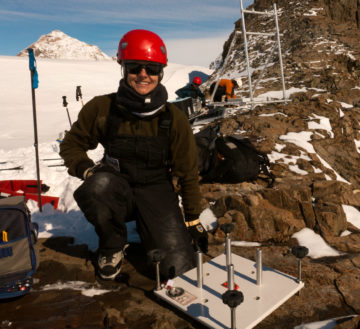1 March, 2023 Diversity in UK Polar Science
Zero Discrimination Day highlights the right of all people to live healthy, full and productive lives with dignity and ending all forms of discrimination that impact on quality of life, health and wellbeing. Professor Pippa Whitehouse works in the Department of Geography at Durham University. She is a long-term collaborator with British Antarctic Survey and a leading Antarctic scientist. She writes for the Diversity in Polar Science Initiative about how she tries to create safe inclusive spaces for everyone by checking her own internal bias and listening.

We often discriminate unintentionally. We forget about the invisible things that might be going on in people’s lives, and in people’s minds. As I grumble a bit about having to fit polar fieldwork in between my teaching I forget that others are trying to fit fieldwork in between caring for young children or dependent adults. I forget that people may not even have the option to contemplate fieldwork due to a medical condition that I am unaware of, or because the system declares them ineligible.
Over the years, I have accumulated many experiences where I have been tactless or insensitive. I am gradually learning from them, and I am grateful to those who have been patient with me on this journey. I listen – really listen – when people describe the challenges of pregnancy, the juggling of early years children, and the rules that silently discriminate because they do not accommodate your situation. I check my internal bias when I meet someone new, I try to catch myself as I jump to conclusions based on that first visual impression, and I listen – that word again – to who they are and what talents they are hiding.
There have been many situations where I have felt like the odd one out – the only woman in the room, the oldest, the youngest, the shortest! Have others noticed that I am different? There is that silent discrimination of feeling like you don’t quite belong, of putting in that extra effort to fit in.
I have now reached that fantastic stage in life where I care much less about what others think of me – and I fully acknowledge that this is an incredibly privileged position to be in. So I try to use my accumulated superpowers for good. I recall that feeling of being the odd one out as I run through a mental list of factors that may lie hidden beneath the surface but cannot be articulated – gender, sexuality, religion, parental status, wealth (lack of), illness, bereavement… I try not to jump to conclusions, I don’t make assumptions, and instead I try to create a safe space so that people can take part on their own terms, write their own rules.
Maybe that’s a good goal to aim for: that people are given the space and the freedom to write their own rules for how they participate in this life, and for how they participate in polar science.
